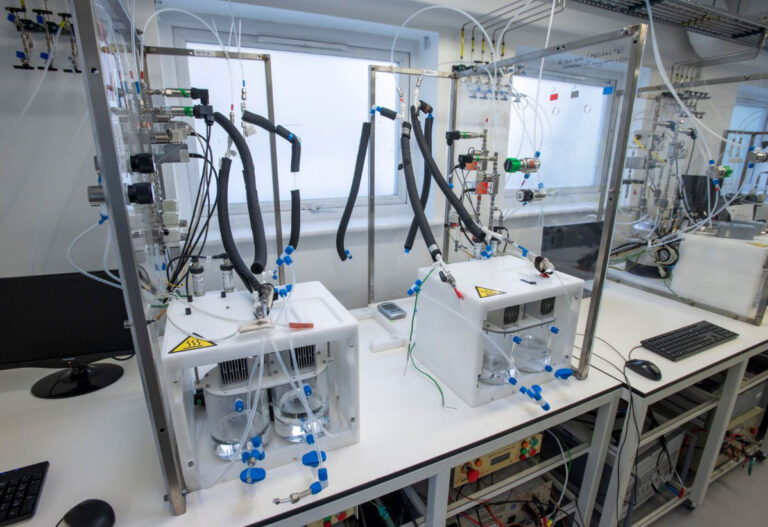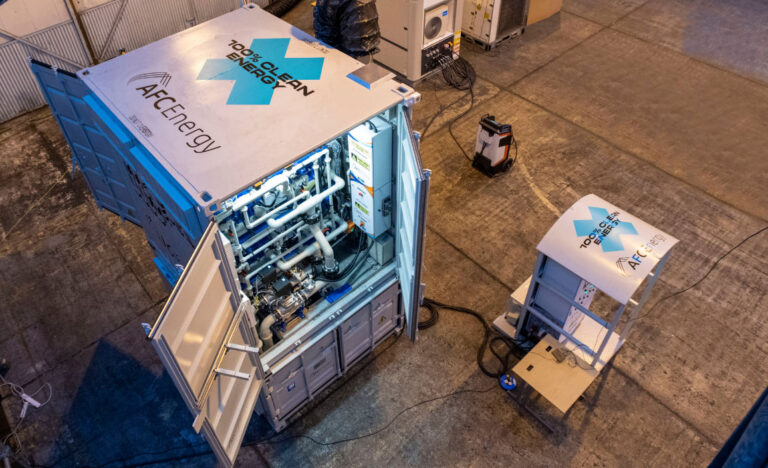Powerhouse Energy Group PLC (LON:PHE) Executive Chairman Keith Allaun caught up with DirectorsTalk for an exclusive interview to discuss the fuel cell order from AFC Energy, the next steps in terms of development and taking advantage of the ‘hydrogen economy’
Q1: Now, you’re taking delivery of a small scale fuel cell system from AFC Energy plc (LON:AFC), could you talk us through the background to this Keith?
A1: This is actually a very exciting time for us and we recognised some years ago that the integration of modular distributed gasification and the creation of distributed hydrogen to fuel fuel cells was going to be really a keystone in the creation of what people refer to as the ‘hydrogen economy’. So, we’re thrilled with the opportunity to work with a partner like AFC, that’s had significant recent success in conducting trials in Germany and achieving long-term operation of their fuel cells.
We initiated a purchase of an AFC fuel cell nearly 3 years ago, frankly we were betting on the fact that they were going to be able to be where they needed to be at about the same time we were going to be able to be where we needed to be, with the redesign and redevelopment of the G3 unit, the timing couldn’t be more perfect. So, we’ve now confirmed our request for delivery, we expect delivery within the next 8 months as this unit is built for us. We expect to be able to integrate it with our G3 system and to be able to demonstrate the creation of electricity in what will be the most environmentally sound mechanism possible which is the utilisation of a fuel cell based on the use of hydrogen that is generated cleanly and inexpensively from waste.
Q2: When the system is received by Powerhouse Energy Group, what will be the next steps in terms of development?
A2: Given the fact that the system is going to be arriving in approximately 8 months, we’re going to be spending the next number of months, as we recommission the G3 when it arrives from Australia, tuning the system, identifying the appropriate feed stock stream to utilise, to generate, the ideal stream of hydrogen for fuelling the AFC fuel cell. Now, one of the exciting things about our soon-to-be office location and the siting of the G3-UHt unit is that it’s at the Thornton Science Park in Chester and the Thornton Science Park, of course, used to be the advanced research centre for Shell Oil. It is a fully-outfitted research facility with complete analysis and testing equipment that we’ll have full access to, coupled with the fact that we have an expanding and growing brains trust with the Chester University faculty and student population that’s going to be able to work with us in creating an ideal hydrogen stream, again, at the lowest cost possible to fuel the AFC fuel cell.
Q3: You touched on this earlier, the ‘hydrogen economy’, how are Powerhouse Energy Group PLC placed to take advantage of this area?
A3: The hydrogen economy is an interesting concept and it’s something that has been bandied about since the early ‘70’s. The idea being that hydrogen is the most ubiquitous and abundant element in the universe and the challenge that is faced with hydrogen is that there are not large stores of hydrogen in any particular place, it’s not like petroleum where there are huge deposits of petroleum, there’s not huge deposits of hydrogen anywhere.
Hydrogen has to be liberated from an existing source so often at time hydrogen can be liberated from water but that’s a very expensive mechanism by which one can acquire hydrogen, the most common mechanism by which one can acquire hydrogen is called steam reformation. The challenge with that is it used natural gas as a fuel source so you’re eliminating the natural gas, you’re creating substantial amounts of potential greenhouse gases as you’re also generating the hydrogen so it’s a relatively non-environmentally friendly mechanism by which hydrogen is created, in addition you’re having to pay for the stock to create it.
So, as I’ve mentioned, Powerhouse Energy are in a position where we’re going to be paid for our feed stock, we’re going to be able to generate hydrogen and the other issue that has surrounded the hydrogen economy, or the other issues that has prevented it from becoming expensive, is that the idea of creating distributed hydrogen has not yet come to the fore. So, the approach that we take with our distributed modular gasification opportunities is that we can create hydrogen where it’s needed, when it’s needed and in the amounts that it’s needed. The single most expensive component of the hydrogen economy at the juncture is transporting hydrogen from where it is captured to where it is need to be used so when we utilise our distributed modular gasification technology to generate hydrogen as and where it’s needed it’s going to reduce that expense dramatically.
So, that’s going to be, we think, the keystone of unlocking the hydrogen economy and affording us the opportunity to begin providing hydrogen on the spot where it’s needed. There’s an initiative in California that we’re pursuing, with a partner, very aggressively which is a hydrogen fuel corridor between San Francisco and Los Angeles to effectively create a number of hydrogen fuelling stations for hydrogen driven cars, this is going to be a huge component of the economy as we move forward and we’re situated to be literally the key that unlocks the door. So, we’re excited about it and we feel like the concept of the hydrogen economy is no longer part of science fiction but with the G3-UHt and with our distributed modular gasification technology Powerhouse Energy Group are positioned to truly become the keystone.







































